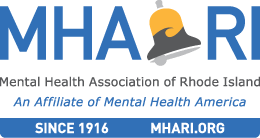PROVIDENCE – A new report released Thursday by the Mental Health Association of Rhode Island highlights what the association’s executive director describes as “gaping holes” in the state’s continuum of mental health care, where people are “slipping and getting stuck.”
The 60-page report, titled “The State of Behavioral Healthcare in Rhode Island,” was compiled by the association in partnership with the Brown Initiative for Policy, a nonpartisan think tank based at Brown University. The report notes publicly available data collected from various state agencies, such as the R.I. Department of Behavioral Healthcare, Developmental Disabilities and Hospitals, the R.I. Department of Corrections and the R.I. Executive Office of Health and Human Services between May 2020 and July 2021.
This report follows the association last year surveying close to 750 behavioral health professionals, which highlighted that the state needs a more diverse pool of behavioral health workers to match the population they serve. Last year’s survey also found problems with “insurance barriers experienced by both providers and patients.” Six in 10 respondents reported they had stopped seeing a patient at least once in the past year due to lack of insurance, claim denials or other related issues.
According to this year’s report from the association and Brown, Rhode Island has “consistently underperformed” the national rate of consumers reporting positively about behavioral health service outcomes since 2012, dropping as low as 68% in 2016 – nationally, it was around 76% that same year. Additionally, even when the rate of positive outcome reports climbed to 73.9% in 2019, there was still nearly a 20% gap between those who reported ease accessing care (93.4%) and those who were content with its efficacy, the report states.
The report also notes that between 2012 and 2019, anywhere from 1 in 10 to 1 and 7 Rhode Islanders reported spending more than half of the past month in mental distress. Plus, an average of 20.6% of Rhode Island individuals ages 18 and older between 2008 and 2018 were estimated to have had any mental illness in the preceding year, higher than the 18.4% national average during that same timeframe.
The report also pulled data from the R.I. Department of Health’s Youth Risk Behavior Survey, which notes mental health problems among adolescents for close to two decades. In each survey dating back to 2005, more than 25% of high school respondents reported “experiencing sadness and hopelessness that impaired social functioning,” the report states. Plus, the report notes that younger individuals, especially males, have been disproportionately impacted by suicide, where suicide in 2018 was the second-leading cause of death for American ages 10-34.
“Given the devastatingly far-reaching impact of suicide on emotional, social, and economic wellbeing at both individual and societal levels, it is imperative for policymakers and the general public to remain cognizant of its preventability,” the report states.
Rhode Island’s student-to-counselor ratio, at 358 students per counselor in public schools, is “far exceeding” the American School Counselor Association’s recommended standard of no more than 250 students per counselor, the report states.
Regarding the state’s criminal justice system, the report notes that an average of 35.4% of inmates across all the state’s corrections facilities between January 2017 and January 2021 were on “psychiatric medications of some kind,” the report notes, costing an average of $51.59 per inmate per month. However, the report states that the provided data regarding the prevalence of serious and persistent mental illness across facilities “were extremely limited,” and more extensive tracking and documentation “is needed.”
The report also notes several recommendations on how to improve Rhode Island’s behavioral health care system. Among them is to fund universal mental health education in K-12 schools and include information on healthy coping skills, trauma, the physiology of addiction, symptoms of mental illness including addiction, and how to access treatment and support. The report also calls on the state to increase mental health funding within RIBHDDH, increase funding for the R.I. Department of Children, Youth and Family’s Division of Community Services and Behavioral Health, and invest in crisis intervention training for police officers.
The report also calls for increased outreach efforts and assistance to communities of Black, Indigenous and people of color, which the report says are “underrepresented as mental health care consumers.”
“I believe in the old adage that it is always darkest before the dawn, and because hope fuels my passion and determination to keep fighting, I will grasp at the flickering sparks of hope in the middle of this darkness,” Mental Health Association of Rhode Island Executive Director Laurie-Marie Pisciotta said in the report. “I see a future where our leaders’ hearts are softened with compassion and emboldened by the rightness of their convictions. I believe they will stop viewing public health matters through a business lens.”
James Bessette is the PBN special projects editor, and also covers the nonprofit and education sectors. You may reach him at Bessette@PBN.com. You may also follow him on Twitter at @James_Bessette.













